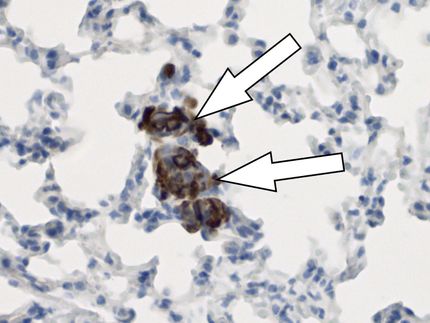Improved breast cancer survival with levels of moderate exercise
Three hours of brisk walking a week is already enough
Advertisement
Physical activity is associated with lower risk of mortality after a breast cancer diagnosis - this is suggested by the results of previous studies. Scientists from the German cancer Research Center (DKFZ) and Harvard University have now shown that this positive effect may be evident even with modest levels of activity. About three hours of brisk walking per week were enough to be associated with significantly reduced mortality in their recent study. This study also found that it doesn't depend on how much exercise a woman did before her cancer diagnosis: Even a moderate increase in physical activity after diagnosis was associated with reduced mortality of almost 30 percent.

Symbolic image
Computer-generated image
Numerous international studies have shown that physical activity can have a favorable effect on the course of cancer, particularly in breast cancer and colorectal cancer. However, there is still a lack of data on how much activity is needed to favorably influence the course of the disease, what type of activity has the most beneficial effect, and whether this applies equally to all cancer patients.
A team of researchers led by Renée T. Fortner (DKFZ and Cancer Registry of Norway) and Heather Eliassen (Harvard TH Chan School of Public Health and Brigham and Women's Hospital) has now investigated these relationships using data from the Nurses' Health Study. This study, launched in 1976, together with the Nurses' Health Study II, initiated in 1989, is one of the world's largest studies of disease risk factors in women. Almost 240,000 nurses from various U.S. states participated in these two studies.
The research team led by Fortner and Eliassen identified 13,371 cases of invasive breast cancer among participants in the Nurses' Health Studies. During up to 30 years of follow-up, 9308 of the affected women provided information about the duration and type of their recreational sports activities before and after cancer diagnosis.
In order to compare the different types of physical activity, the epidemiologists first converted them into the common unit of measurement of metabolic equivalent tasks per hour, or "MET/hr" for short. 3 MET/hr corresponds roughly to the energy consumption of one hour of brisk walking.
The result of the study: The more active the women were after their breast cancer diagnosis, the more favorable the course of their disease. Even with activity levels equivalent to about three hours of brisk walking (about 9 MET/hr) per week was associated with reduced overall mortality of 27 percent.
"Our study suggests even modest levels of activity following a breast cancer diagnosis are potentially beneficial. Women don't have to run a marathon or go all out in the gym," says Renée Fortner. "These results suggest a potential benefit from relatively moderate workouts that many can incorporate into their routines."
The association between activity and mortality was particularly pronounced for the common "receptor-positive" breast cancers, whose cells react to female sex hormones. This subtype affects about three-quarters of all breast cancer patients in the western world. Physical activity also has a particularly beneficial effect on breast cancers diagnosed after menopause.
The researchers also compared the results with the body mass index of the participants and found that the beneficial effects of physical activity cannot be explained by body weight alone.
Fortner and Eliassen uncovered another encouraging aspect, looking at changes in activity before and after diagnosis. The result: even a rather modest increase of 3 to 9 MET/hr per week reduced overall mortality by about 30 percent - independent of the prediagnosis levels of physical activity.
The summary of the study authors Fortner and Eliassen "The best advice we can give women with breast cancer: Get active! Walking or cycling, dancing or strength training - every woman can choose what suits her best and make important contributions to her own health."
























































